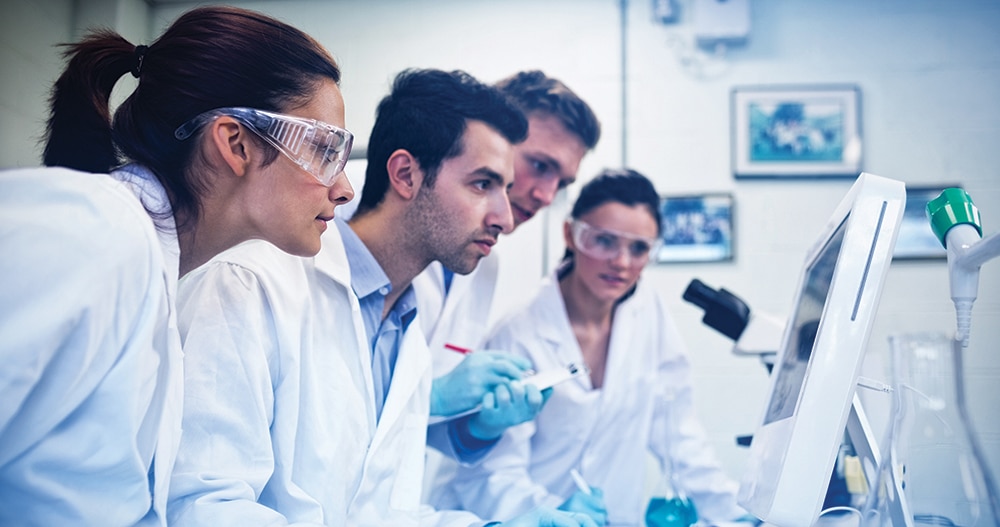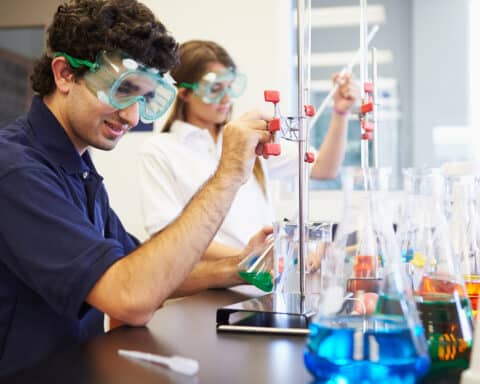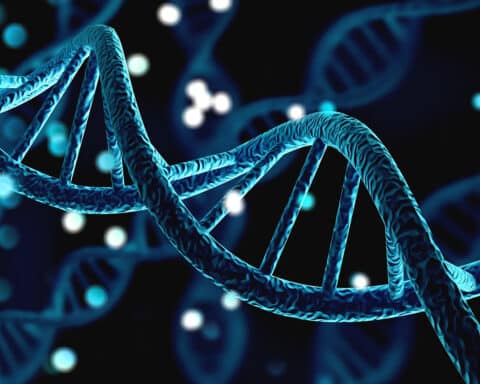There is a false notion that religion is an impediment to science. It is a contention that students in the sciences of biology will likely confront in their field. Educators at committed Catholic colleges explain that faith and science are in harmony with one another, and it is part of their mission to help students understand that.
Good Catholic institutions integrate these two bodies of knowledge since God is the author of both, and faith united with science provides moral safeguards. In the field of biology, however, where creating human life in petri dishes and changing the DNA of a human embryo are possible, human beings mistakenly think that they can play God.
“It’s not really a matter of integrating faith with science, it’s refusing to follow the atheist approach of disintegrating faith from science,” according to Patrick Reilly, president and founder of The Cardinal Newman Society, which promotes faithful Catholic education and publishes the annual Newman Guide to Choosing a Catholic College. “A Catholic school or college should be eager to address obvious and fundamental questions of where things come from, who designed such amazingly complex systems, what are the purposes of things, and what is man’s role in nature. Science, like every discipline, is better understood and appreciated with the insights of Christianity.”
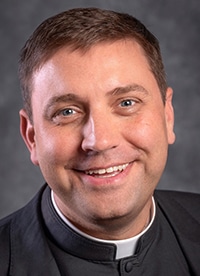
At the University of Mary in Bismarck, North Dakota, president Msgr. James Shea explained: “Just because we can do something doesn’t mean we should. It’s important to step back, and ask: What will this do for the future of humankind? We need to ask these profound questions using the deep insights of the Catholic faith.”
Fundamental to the work of a Catholic university is preparing students to engage in the culture, according to Msgr. Shea. “We think the Gospel of Jesus has a conquering spirit and is an attractive force, so we want students to be very carefully prepared.”
The love of the Catholic faith and respect of human life begins at the top at the university. In the summer of 2017, Msgr. Shea led the entire faculty (41 people) of the department of Health Sciences on an 11-day retreat, which included a visit to a concentration camp in Dachau, Germany, and the Shrine of Our Lady of Lourdes in France. “I wanted them to see up close what it means to give credence that there is life not worthy of life and what it looks like when faith and reason work together for the dignity of the person.”
The University of Mary offers a variety of majors in the health sciences and has the only master’s degree in bioethics in the country. Regardless of the major, however, classes in theology and philosophy from the Catholic studies department will be a part of it so that students are informed by the Catholic genius.
Powerful experiences of faith such as taking four busses of students to the March for Life every year and bringing in riveting speakers is part of a very intentional strategic plan. “We want to expose students to the truths and the beauty of the Catholic faith in order to help them develop habits of their faith and habits of the mind so that it will be integrated into their whole vision,” Msgr. Shea said.
| Faith and Science |
|---|
|
“Though faith is above reason, there can never be any real discrepancy between faith and reason. Since the same God who reveals mysteries and infuses faith has bestowed the light of reason on the human mind, God cannot deny himself, nor can truth ever contradict truth. Consequently, methodical research in all branches of knowledge, provided it is carried out in a truly scientific manner and does not override moral laws, can never conflict with the faith, because the things of the world and the things of faith derive from the same God. The humble and persevering investigator of the secrets of nature is being led, as it were, by the hand of God in spite of himself, for it is God, the conserver of all things, who made them what they are.”
— Catechism of the Catholic Church, No. 159 |
Thinking critically, responsibly
Heather Ayala, chair and associate professor of biology at Belmont Abbey in Belmont, North Carolina, explained that an introduction to the Benedictine history and spirituality is part of an “Abbey education.” In this way, students come to understand biology as the study of life and life processes. “Such knowledge constitutes a vital part of that liberal learning whose goal, as John Henry Newman noted, is ‘fitness for the world,'” she said. “We aim for the study of biology to help students assess the many issues that face today’s world, enabling them to become responsible citizens and to promote the common good.”
The Benedictine mission of Belmont Abbey is a central piece in the development of their new science and health related initiatives, according to Ayala. Belmont just developed a new degree in biochemistry that also requires students take a bioethics course taught out of the theology department in order to get them thinking critically about the field from a Catholic perspective. The college also recently announced that Caromont, a local health care system, is building a hospital adjacent to campus. The lease agreement with the Benedictine monastery ensures that nothing contrary to the Church’s teaching will be done at the hospital.
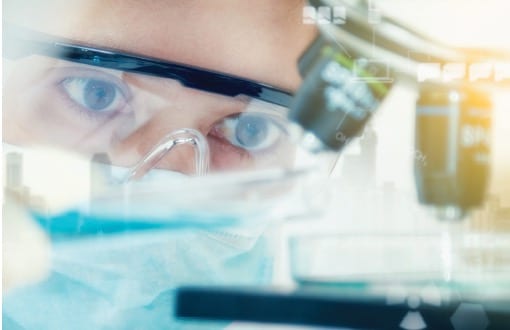
Dan Kuebler, biology professor, researcher and dean of the School of Natural and Applied Sciences at Franciscan University in Steubenville, Ohio, said that by requiring students to take philosophy and theology courses along with core courses, they learn to think critically in their fields from a moral perspective. “In certain courses in biology, they discuss reproductive issues and things like cloning and cell modification to include Catholic morality and philosophy.”
For example, Kuebler said that genetic modification looks different from a utilitarian view compared to a Catholic moral view. Students must confront the question “What is the nature of a human person?” before determining if there is a benefit to cell modification. “If we are made in the image and likeness of God, then there is a consideration of what does it do to the human person when embryos are just discarded?” he said. “Is it in their best interest if we are made to know and love God, or do they just become an instrument to an end? From a utilitarian point of view, it doesn’t matter. From a Catholic perspective, we see the inherent dignity and worth from one cell stage to another, from conception to the elderly.”
Franciscan also has a robust internship program where students work in laboratories in private industry and the government that must be navigated. “We have had students come back with issues such as working with cell lines from aborted fetal tissue,” Kuebler said. “We have them say that they need to be put on another project.”
Finding meaning in creation
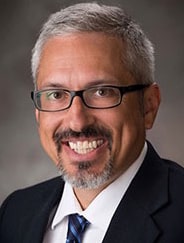
At The Catholic University of America, students of every degree participate in the liberal arts curriculum with courses in philosophy, theology, and the humanities, explained Aaron Dominguez, provost and professor of physics. As they move into STEM degree programs (science, technology, engineering and math) students are introduced to courses with Catholic teachings specific to their fields.
“Through this integration, and the recognition that we are joined together in our common humanity to work together across the world on big scientific problems, we recognize that God has created us this way to do this, so that we could both better understand his creation and himself,” Dominguez said. “This is a fundamental connection between science and faith.”
As an experimental particle physicist, Dominguez said that he has been asked whether it’s possible to be a Catholic, or even a believer, and a scientist. “To me the answer is obviously, yes!” he said. That question reveals profound misunderstandings about the natures of God, faith and science, according to him. “Our search to know God, his revelation to us, our understanding of who we are and what we are for, are what helps us make sense of this amazing natural world. It gives meaning. Therefore, I do not think there are areas that conflict with Catholic values, since everything we do and everything we study is an opportunity for us to find God and find meaning in God’s creation.”
Patti Maguire Armstrong writes from North Dakota.

